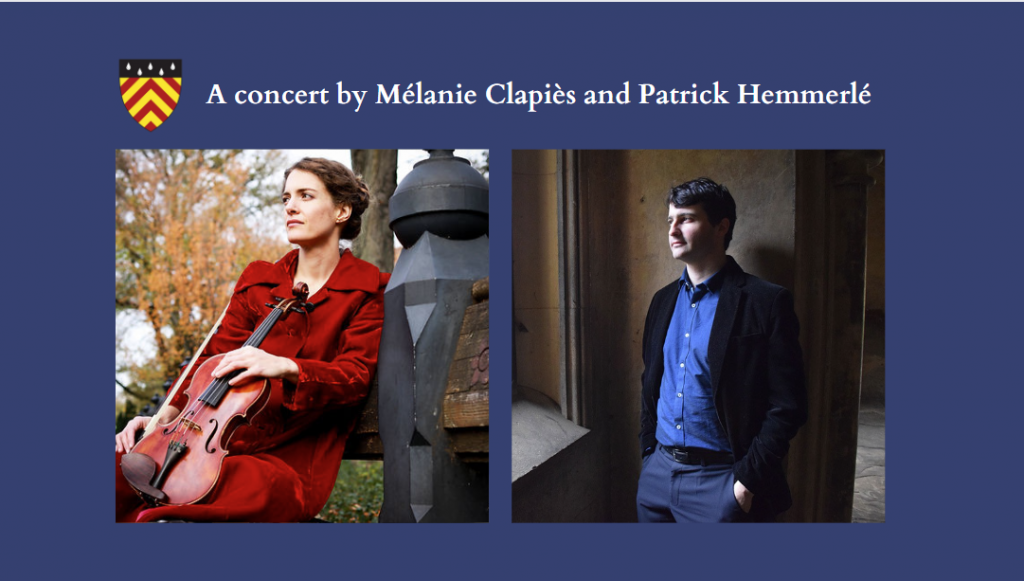A concert by Mélanie Clapiès and Patrick Hemmerlé

Programme
Franck Violin sonata
Enescu: Violin Sonata 3, opus 25
About the concert
Franck’s violin Sonata has achieved immense popularity with both performers and audiences. It is not difficult to see why, for it combines a wealth of unforgettable melodies, a richly chromatic harmony, an expressive sound world of searing intensity, and a formal design of great originality. Chausson was one of Franck’s most talented students, the most Wagnerian of French composers.
The Sonata No. 3 in A minor “dans le caractère populaire roumain” (in Romanian Folk Style) for violin and piano, Op. 25, is a chamber music composition written in 1926 by the Romanian composer George Enescu. The score, published in 1933, is dedicated to the memory of the violinist Franz Kneisel. It is one of the composer’s most popular and at the same time most critically respected works.
The Third Violin Sonata was written in a span of about four months in 1926 at a time when Enescu was also occupied with the late stages of work on the opera Oedipe. The sonata was first performed in Oradea, in January 1927 by the composer and the pianist Nicolae Caravia, who repeated it shortly afterward in Bucharest. Enescu and Caravia also gave the Paris premiere in March 1927, in the Salle Gaveau. A particularly notable early performance took place in Paris in June 1930, when the composer was partnered by Alfred Cortot. Enescu’s pupil Yehudi Menuhin made a recording in 1936 with his sister Hepzibah Menuhin on piano, and the composer himself recorded the work twice as a violinist, in 1943 with Dinu Lipatti and again a few years later with Céliny Chaillez-Richez. A performance took place in May 1946 with Yehudi Menuhin playing the violin part, accompanied on the piano by the composer.
The sonata prompted enthusiasm immediately at the time of its premiere, and has ever since been the composition by Enescu that has received the greatest amount of attention in the musicological and critical literature, with the possible exception of his opera, Œdipe. It has also become the most popular of Enescu’s works after the two Romanian Rhapsodies.
Mélanie Clapiès is a violinist who cultivates a unique solo and chamber music career worldwide. Mélanie’s work can be found here.
Tickets available on Eventbrite.